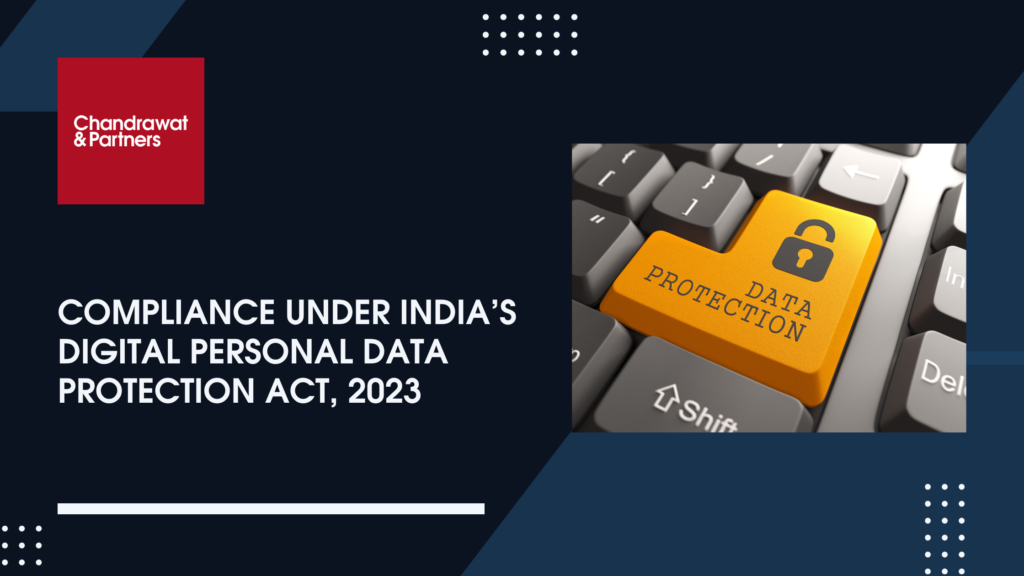Share :
Introduction
In the digital age, the protection of personal data has become a paramount concern. As we look ahead to the implementation of the Digital Personal Data Protection Act, 2023 (the “Act”) in India, organizations need to be well-prepared to adhere to the forthcoming compliance requirements. While the full spectrum of obligations is still being developed, it is necessary to delve into the potential measures that businesses might have to consider for ensuring data protection and compliance.
The Act is set to govern the processing of digital personal data within India, whether it’s gathered through online or offline means. This comprehensive approach reflects the evolving nature of data collection and reinforces the need for data protection across various channels.
Prioritizing informed consent
One cornerstone of the Act is the requirement for organizations to obtain explicit and informed consent from individuals before collecting and processing their data. This shift aims to empower individuals with more control over their data, underscoring the importance of transparency in data protection.
Appointing data protection officer
With an emphasis on accountability, organizations will need to appoint a Data Protection Officer (“DPO”) responsible for ensuring compliance with data protection regulations. The DPO will play a pivotal role in overseeing data protection strategies and acting as a point of contact for individuals and authorities.
Data localization for enhanced security
The Act could potentially introduce data localization requirements, obligating certain categories of personal data to be stored and processed exclusively within India. This measure aims to bolster data security and mitigate risks associated with cross-border data transfers.
Prompt data breach notifications
In a bid to enhance data breach response and transparency, organizations might be required to promptly notify affected individuals and relevant authorities in the event of a data breach. This approach aligns with global trends and emphasizes the importance of quick, effective responses to data security incidents.
Empowering data subjects
The Act could grant individuals a range of rights concerning their data, including the right to access, rectify, erase and restrict the processing of their information. This shift towards data subject empowerment reflects the changing landscape of data privacy.
Balancing purpose limitation
The Act could grant individuals a range of rights concerning their data, including the right to access, rectify, erase and restrict the processing of their information. This shift towards data subject empowerment reflects the changing landscape of data privacy.
Navigating data transfers
If personal data is destined to cross Indian borders, organizations may have to adhere to stringent requirements or safeguards. This measure intends to secure the privacy of data even when it leaves the country’s jurisdiction.
Recording data processing activities
Keeping meticulous records of data processing activities might become a regulatory requirement. This practice serves not only as a compliance measure but also as a tool for organizations to enhance their data management practices.
Conclusion
While the precise contours of compliance under the Act are still in the making, organizations cannot afford to ignore the impending changes. Staying informed, monitoring updates, and seeking advice from legal experts or data protection professionals are pivotal steps toward ensuring seamless compliance with this new regulatory landscape. By embracing these measures, organizations can navigate the path to data protection while fostering trust in the digital realm.
How we can help?
By offering the following services, our team can help organizations comply with the Act:
- Our team can assist by undertaking a comprehensive analysis of the organization’s data privacy standards. This evaluation will assist in identifying the areas where improvements are required in order to adhere to the provisions of the Act.
- Our team of professionals can assist in creating a thorough privacy policy that complies with the Act’s standards. This policy will ensure accountability and openness.
- Our team can assist in setting up solid consent management systems which includes putting in place procedures that allow people to quickly withdraw their consent if they so want.
- Our professionals can assist in developing a data breach response plan. This plan will detail the actions to be done to lessen the effects of a breach, notify those who might be impacted and adhere to legal requirements.
For more information or queries, please email us at
[email protected]





